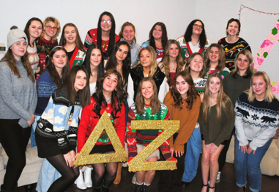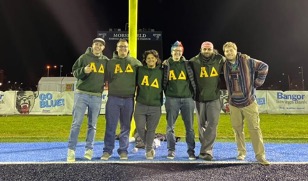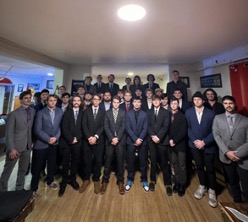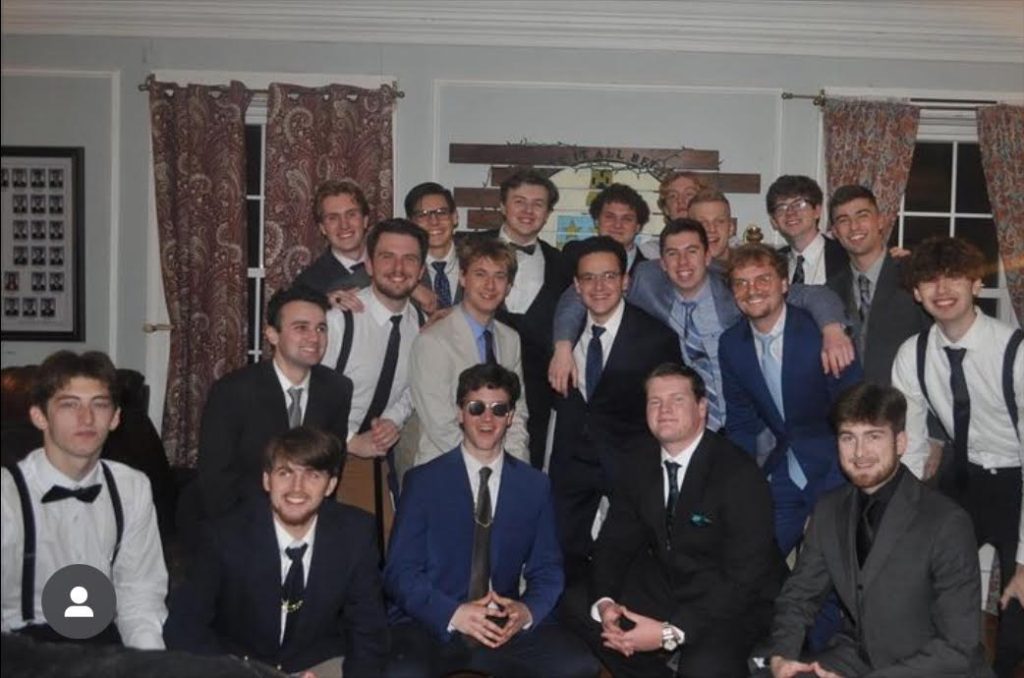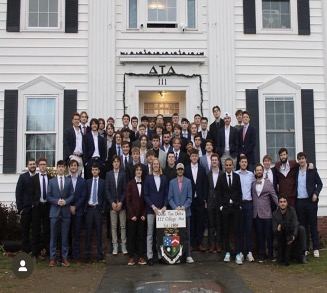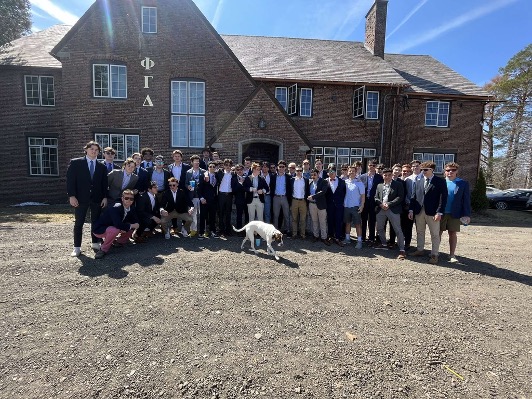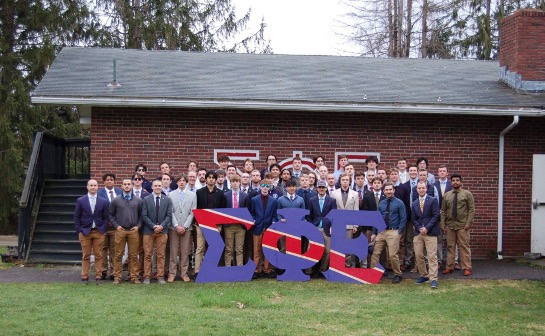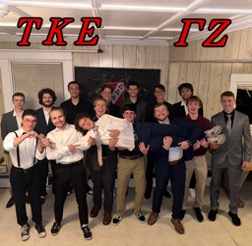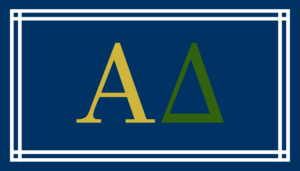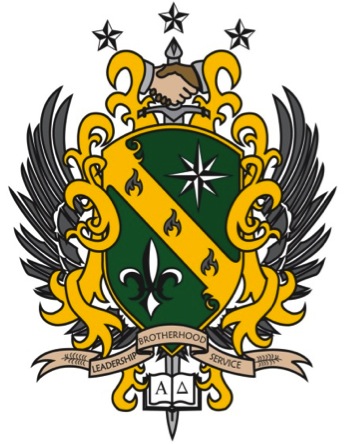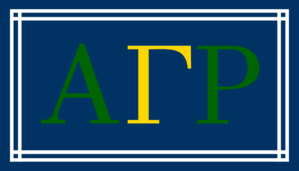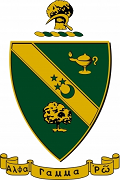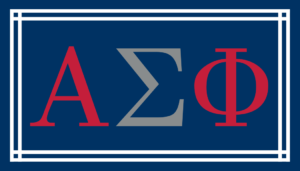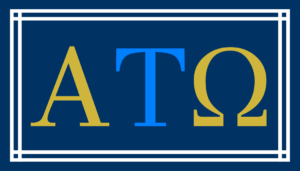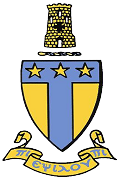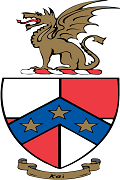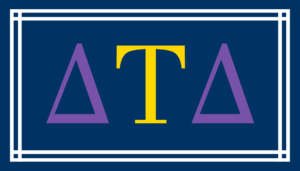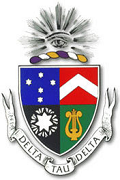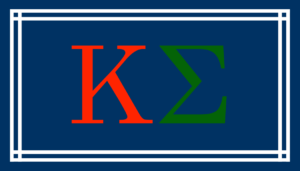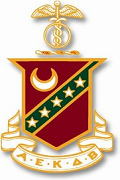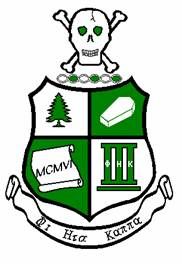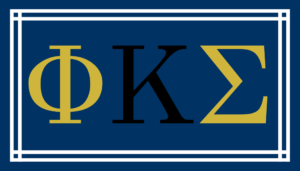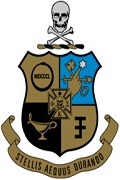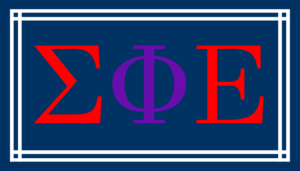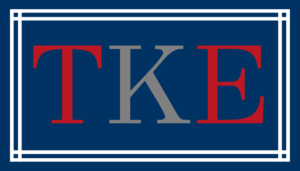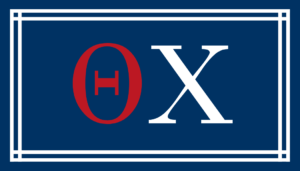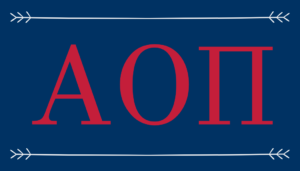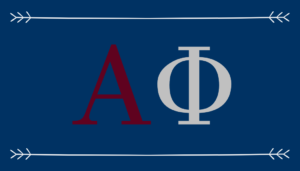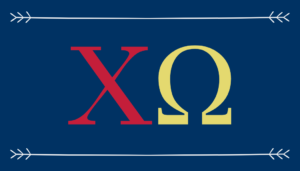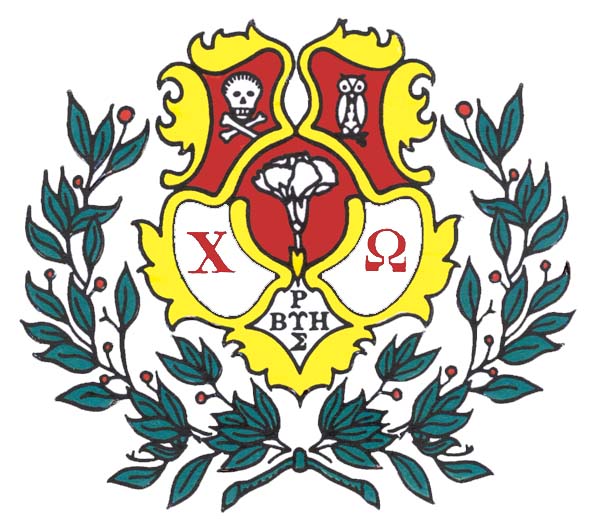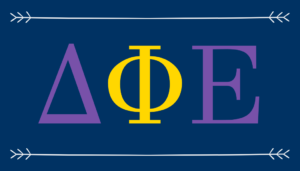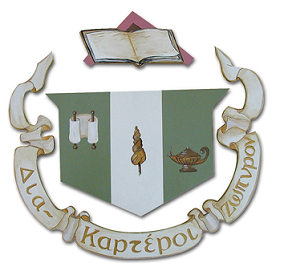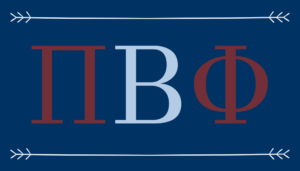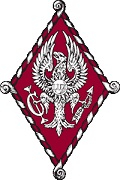Welcome to Fraternity and Sorority Life
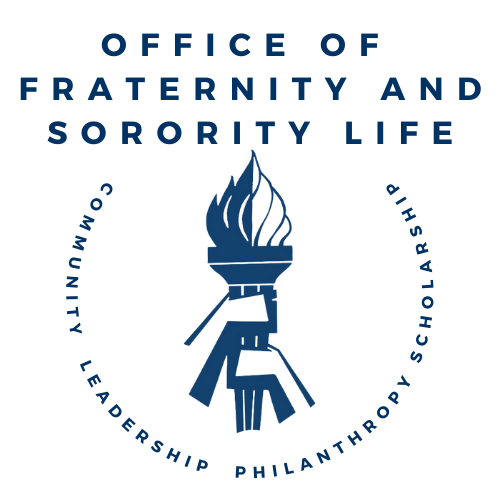
Our Mission and Vision:
The Office of Fraternity and Sorority Life advocates for the benefits that Greek Life brings to the University of Maine and greater community by advising individuals, organizations, and Greek communities, developing event/risk management plans, and providing trainings for organizations and members to build awareness of issues and develop ways to address them. As advisors to students that are seeking leadership opportunities, ways to give back to the community, and to be a part of something greater, the Office of Fraternity and Sorority Life works to provide the tools and resources both on and off campus that organizations and their associated members need to have a positive impact on campus living and the student experience.
We strive to enhance the student experience utilizing the cornerstones of Greek Life: Scholarship, Leadership, Service, and Community. Through cooperation, advocacy, and advising, we endeavor to create a community of fraternities and sororities that fosters life-long connections and passionate leaders focused on making a positive impact in the world around them.
About Fraternity and Sorority Life:
Fraternity and sorority life has existed at the University of Maine since 1874. Approximately 13% of the University of Maine undergraduates are members of our Greek organizations, with fraternities and sororities making up close to 1,000 students participating in one of the 13 fraternities or 8 sororities on campus!
Fraternities and sororities enhance the quality of student life at the University of Maine. Their commitment to the ideals of the social Greek-letter community promotes and provides for their members’ academic support, leadership development, avenues in which to develop life-long friendships, and opportunities to participate in service to the community. These community standards and efforts are an important contribution to the excellence of the University of Maine.
At the University of Maine, we hold our fraternities and sororities to high standards philanthropically, communally, and academically. To display these academic standards and how chapters compare to the wider university population, GPA reports and statistics throughout the past four years are shared on our website below. This information also helps the reveal how each individual chapter impacts the success of their chapter members.
How It Works
All of the fraternities and sororities make up respective governing councils known as Interfraternity Council (fraternities) and Panhellenic Council (sororities), which oversee their constituent organizations and allow for peer leadership and accountability within the greater Greek community. Both councils represent their organizations in the Undergraduate Student Government (UMSG), and work with national representatives to maintain the ideals of Greek Life!
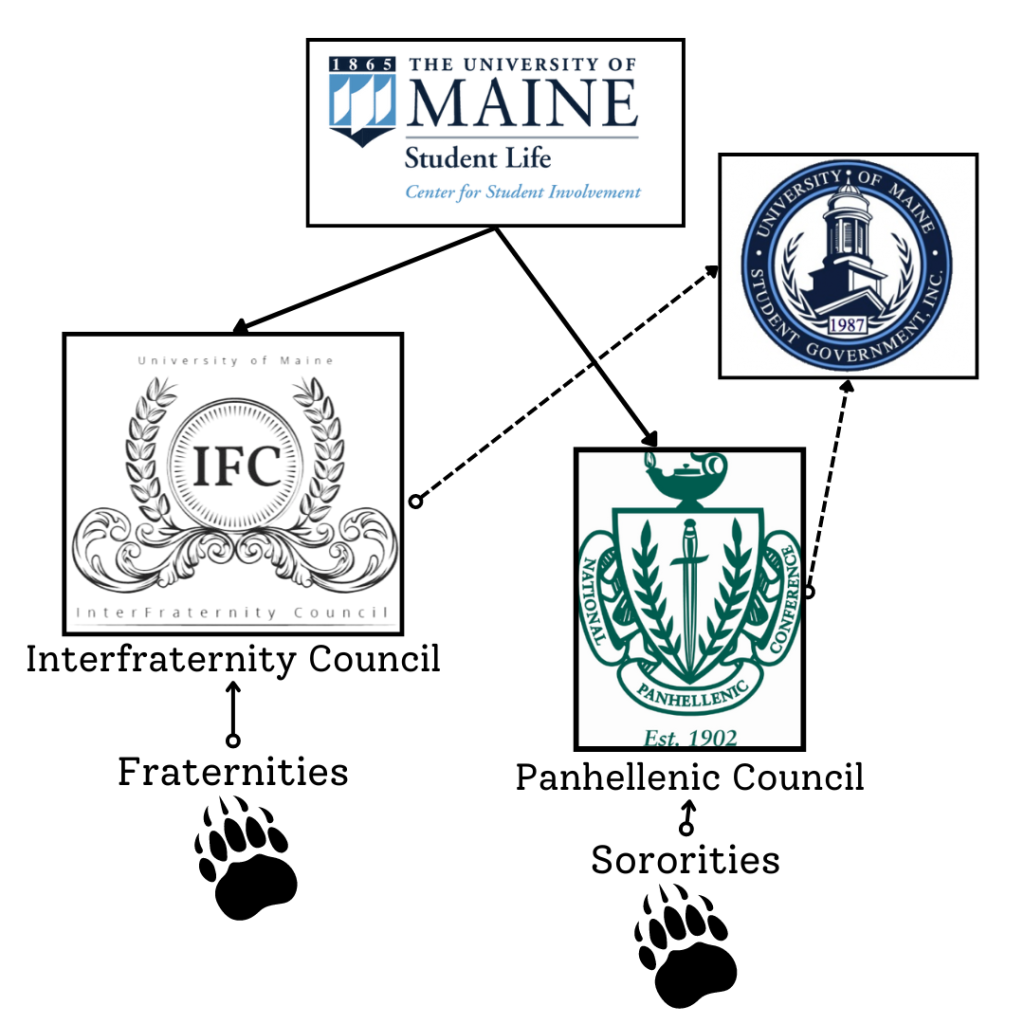
Explore Below to learn more about the Interfraternity and Panhellenic Councils and the Organizations they represent!
Interfraternity Council
The purpose of the IFC shall be to:
A) provide a sovereign governance structure for its Member Fraternities;
B) promote the interests of its Member Fraternities, of men’s fraternities in general, and of the University of Maine;
C) promote mutual cooperation between its Member Fraternities and the IFC with the University of Maine, its students, staff, student organizations, and local community
Panhellenic Council
The purpose of the Panhellenic Council is to:
A) consider the goals and ideals of member groups as continually applicable to campus and personal life;
B) promote superior scholarship and basic intellectual development;
C) cooperate with member women’s sororities and the university administration in concern for and maintenance of high social and moral standards;
D) act in accordance with National Panhellenic Conference (NPC) Unanimous Agreements, policies, and best practices so as to not violate the sovereignty, rights, and privileges of member women’s sororities
Frequently Asked Questions
What are the benefits to membership in a Greek letter organization?
A recent study completed at the University of Missouri showed that membership in Greek letter organizations increased the likelihood that students would return to college their second year and remain through graduation. Choosing to become part of a Greek letter organization also allows your son or daughter to meet new people and develop a support network in their new environment away from home. Membership gives them the opportunity to participate in many campus and chapter events, volunteer service, and to create a “family” of friends.
What does membership in a Greek letter organization mean for a student academically?
The primary goal of any student attending The University should be to obtain a quality education. In keeping with that goal, all fraternities and sororities have academic standards their members must maintain to stay in good standing with the organization. In order to help their members succeed academically, many of the Greek organizations will offer scholarship opportunities, study halls, study buddies, and/or incentive programs for academic achievement. At The University of Maine, the average fraternity and sorority GPA’s each semester are comparable to The University’s men’s and women’s averages.
Do Greeks participate in volunteer service?
Every school year our Greek organizations complete thousands of hours of service and raise thousands of dollars. Each fraternity and sorority have national philanthropies their organizations support throughout the year. The organizations at The University of Maine also take great pride in taking an active role in our local community. Our organizations frequently collect cans for local food banks, work with the Adopt-A-Highway program, organize blood drives to benefit the local Red Cross.
What does it cost to be a part of a Greek organization?
There is a financial commitment required to become a member of a Greek letter organization. Each chapter is supported by the dues collected from it’s undergraduate members. The amount of dues collected varies by organization. When a student is looking to join a Greek organization, they should be sure to ask what the exact financial obligations involved are of the group they are interested in. The first semester in the fraternity or sorority may be slightly more expensive than latter semesters due to one-time fees, such as “pledge” or “initiation” fees.
Are Greeks involved with other activities on campus?
Greek organizations help their members to develop their leadership skills and encourage their members to become involved in leadership roles in other organizations on campus. Greeks are currently represented among Student Government, the Off Campus Board, Student Orientation Leaders, Residence Advisors, and many others.
Are there long term benefits to being a member of a Greek letter organization?
Joining a Greek letter organization is a life-long commitment. There are continued opportunities to reap the benefits of membership in these organizations. Some of these opportunities may include scholarship opportunities for post-graduate education, leadership opportunities within alumni groups locally or nationally, and continued interest in volunteer service.
One of the most significant long-term benefit is the networking possibilities available to members of Greek letter organizations. Relationships within Greek organizations extend beyond the people met in college. Membership opens the doors to career networking nationally. Following graduation, Greek alumni have also been shown to have significantly higher average income levels than students who were not affiliated with Greek letter organizations during college. Most Greek letter organizations also have alumni chapters across the country. These alumni groups provide an excellent way to meet new people and find support when a student relocates after college.





